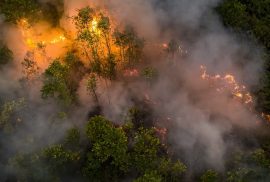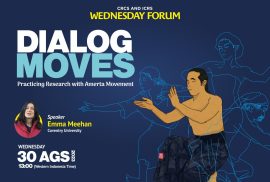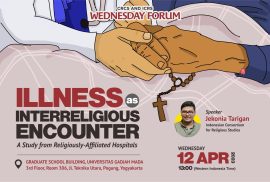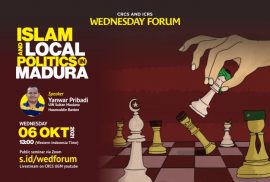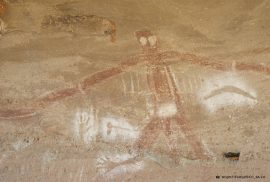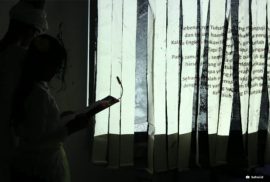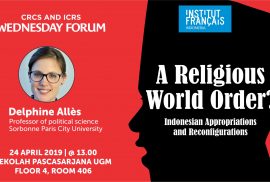Membingkai Peristiwa, Menggali Imaji
Hanny Nadhirah – 17 November 2023
Bagaimana sebuah foto dapat memiliki pengaruh besar dalam membentuk pemahaman kita tentang suatu peristiwa?
Foto atau gambar yang sering kita lihat rupanya bukanlah sesuatu yang netral. Di dalamnya mengandung konstruksi makna dan kepentingan tersembunyi. Sebagai sebuah visualisasi atas peristiwa, foto berpengaruh besar pada cara kita memahami, merasakan, dan mengambil tindakan terkait peristiwa tersebut. Fenomena inilah yang Elis Zulianti Anis, dosen Universitas Ahmad Dahlan Yogyakarta, diskusikan pada Wednesday Forum (27/09) “Picturing Power: State Media, and Religious Representation in the 2015 Sumatra Forest Fires.” Elis memaparkan temuan penelitiannya terkait publikasi foto-foto media lokal saat kebakaran hutan dan lahan (karhutla) Sumatra tahun 2015.

